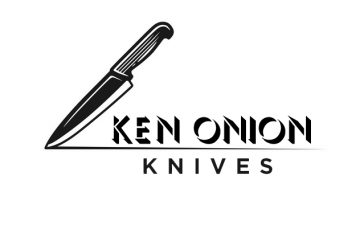If you are a Damascus steel knife collector, it is essential to maintain your blade in good condition to preserve its unique pattern and durability. This includes cleaning, honing and sharpening your blade, as well as preventing rust and corrosion.
High carbon steels like hand forged Damascus are particularly prone to oxidation. This oxidation is part of the beauty and character of this type of steel.
Wash and Dry
To care for your Damascus steel knife, you should always wash it properly. This helps to maintain its sharpness and extend the life of your blade.
To keep your knife clean, wipe it down with a cloth or sponge and use mild dish soap to remove any dirt or food particles. Make sure to dry it thoroughly after washing to prevent rust and corrosion.
When storing your Damascus steel knife, use a storage block or magnetic rack to protect it from damage. It also allows you to easily locate and access your knife when it is needed.
It is best not to store your Damascus steel knife in a leather sheath as it can cause the steel to oxidize and damage its edge. This is because leather is tanned with acids and chemicals that can deteriorate the steel.
Oil
A good Damascus steel knife is a great addition to any kitchen. It’s durable and sharp, and its unique patterns make it a desirable piece of art in the home.
Like other stainless steel knives, Damascus knives are sensitive to moisture and can become rusted or discolored over time if not properly cared for. Regularly wiping down the blade with a light coating of oil can help prevent rust and other damage from occurring. Renaissance wax, mineral oil, coconut oil, and beeswax are all good options for protecting and conditioning your Damascus knife.
Avoid exposing your Damascus knife to abrasive materials, alkalis, and acids. These impacts can cause etching of the pattern on the lateral edges of the blade, or other marks or scratches that may damage it.
Hone
Damascus steel knives are some of the most beautiful and functional blades available. They are known for their unique pattern, strength, and rust resistance.
To care for your Damascus steel knife, it is important to hone the blade regularly. This will keep the edge sharp and make it more effective when cutting.
Honing a Damascus steel knife is a safe and easy process, but you must use the right tools for the job. A diamond stone, whetstone, a tabletop sharpener, coarse or fine-grit honing steel, and bench stones are all useful for honing your Damascus steel knife.
You can hone your Damascus steel knife by placing it on a whetstone and moving it back and forth across the stone. This will remove any nicks and chips that may have formed in the blade. It is best to hone your Damascus knife at least once a week for heavy use and once a month for light use.
Store
To help keep a Damascus steel knife in tip-top condition, it is important to store it properly. This is because exposure to moisture can cause rust and corrode the blade.
The best way to store a Damascus steel knife is to use a box or soft case, which protects it from temperature fluctuations and moisture. You can also purchase a sheath to help keep it safe when not in use.
In addition to storage, you should also regularly sharpen your Damascus steel knife. This will ensure that it stays in top shape and will provide you with years of reliable performance.
A Damascus knife is made by incorporating different types of steel together to produce a lovely wavy pattern. This type of steel was used in swords centuries ago, and it has a rich history.
